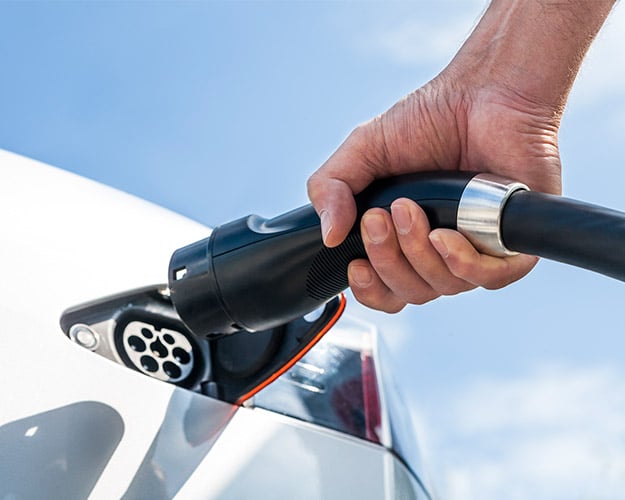Key Takeaways
- The Inflation Reduction Act significantly modified the New Clean Vehicle Credit.
- Modifications included new requirements for North America final assembly, taxpayer income thresholds, vehicle sales price limits, and critical mineral and battery requirements.
- The manufacturer is responsible for certifying a vehicle’s eligibility. Taxpayers must determine if the credit is beneficial to their unique tax situation.
The Inflation Reduction Act (IRA) provides taxpayers many new options for clean energy tax credits while also extending and modifying existing incentives.
The IRA significantly modified the New Clean Vehicle Credit (formerly known as Plug-In Electric Drive Vehicle Credit) criteria by including new requirements for North America final assembly, taxpayer income thresholds, vehicle sales price limits, critical mineral requirements, and battery component requirements. These changes have gradually taken effect since the IRA’s enactment in 2022.
Credit for Vehicles Purchased in 2022
Shortly after enactment of the IRA, the Internal Revenue Service (IRS) released information to help taxpayers navigate credit eligibility based on immediate changes that were effective for vehicles purchased before January 1, 2023.
Credit for Vehicles Purchased in 2023 and 2024
Beginning January 1, 2023, the credit contains several new terms and qualifications. Although taxpayers need familiarity with these terms to make informed buying decisions, manufacturers have the responsibility to certify with the IRS that a vehicle qualifies for the credit. The IRS maintains a list of qualifying vehicles for reference.
- What is the impact of the clean vehicle credit on dealerships? We broke down what dealers need to know here.
What You Need to Know About the Clean Vehicle Credit
To help taxpayers determine eligibility, the IRS released Frequently Asked Questions (FAQs) to clarify key revisions under the IRA.
Summary of Key Changes
The new criteria require manufacturers to make several modifications for vehicles to be eligible. Changes include:
- Battery mineral and component sourcing requirements
- Final assembly requirements
- Sales price limitations.
These changes have reduced the number of eligible vehicles available.
Critical Minerals and Battery Components
While the credit amount remains $7,500, the criteria has changed.
- Related to the vehicle’s battery, $3,750 is available if a percentage of the value of battery’s critical minerals is extracted or processed in the United States or a country with which the United States has a free trade agreement or be recycled in North America.
- Additionally, $3,750 is available if a percentage of the value of the battery components is manufactured or assembled in North America.
After April 18, 2023, the requirements are as follows:
| Critical Mineral (% of the value of the critical minerals) |
Battery Component (% of the value of the battery components) |
|
|---|---|---|
| 2023 | 40% | 50%* |
| 2024 | 50%* | 60% |
| 2025 | 60% | 60% |
| 2026 | 70% | 70% |
| 2027 | 80% | 80% |
| 2028 | 80% | 90% |
| 2029 - 2032 | 80% | 100% |
*An additional restriction related to Foreign Entities of Concern.
Manufacturer’s Suggested Retail Price
Additional restrictions on vehicles include North America final assembly requirements and specific manufacturer’s suggested retail price (MSRP) limitations:
- Vans - $80,000 MSRP
- Sport Utility Vehicles - $80,000 MSRP
- Pickup Trucks - $80,000 MSRP
- Other - $55,000 MSRP
Taxpayer Income Limitations
To be eligible, individual taxpayers must fall under specific income limitations for the current or preceding tax year. The modified AGI thresholds (in the year of delivery or the previous tax year) are:
- Married filing jointly or filing as a qualifying surviving spouse or a qualifying widow(er) - $300,000
- Head of household - $225,000
- All other taxpayers - $150,000
Direct Transfer
Beginning on January 1, 2024, a new provision allows taxpayers to directly transfer the credit to qualified dealerships. While the credit may still be claimed by filing Form 8936, Qualified Plug-in Electric Drive Motor Vehicle Credit, eligible taxpayers may immediately receive the credit by participating in the IRS’s direct transfer program.
With taxpayer authorization, registered dealerships may apply for payment directly from the IRS when electronically submitting the seller report. If eligible this allows the taxpayer to benefit from the financial incentive at the time of purchase, instead of waiting to file their tax return. Although taxpayers must repay the credit if income limitations are surpassed on their tax return, credit recapture is not necessary if the credit exceeds their regular tax liability.
Next Steps for Utilizing the Clean Vehicle Credit
While the IRS has released information to help clarify the new Clean Vehicle Credit requirements, the responsibility falls to the manufacturer to certify a vehicle’s eligibility. This means taxpayers are not directly responsible for determining if a vehicle qualifies for the credit. Instead, the taxpayer’s responsibility is to determine if they meet appropriate AGI thresholds, whether to utilize direct pay, and if the credit is beneficial to their unique tax situation. Taxpayers should also consider the variety of state incentives that may be available.
What to know about changes to the federal income tax credits available for vehicles.
 Read the Article
Read the Article


